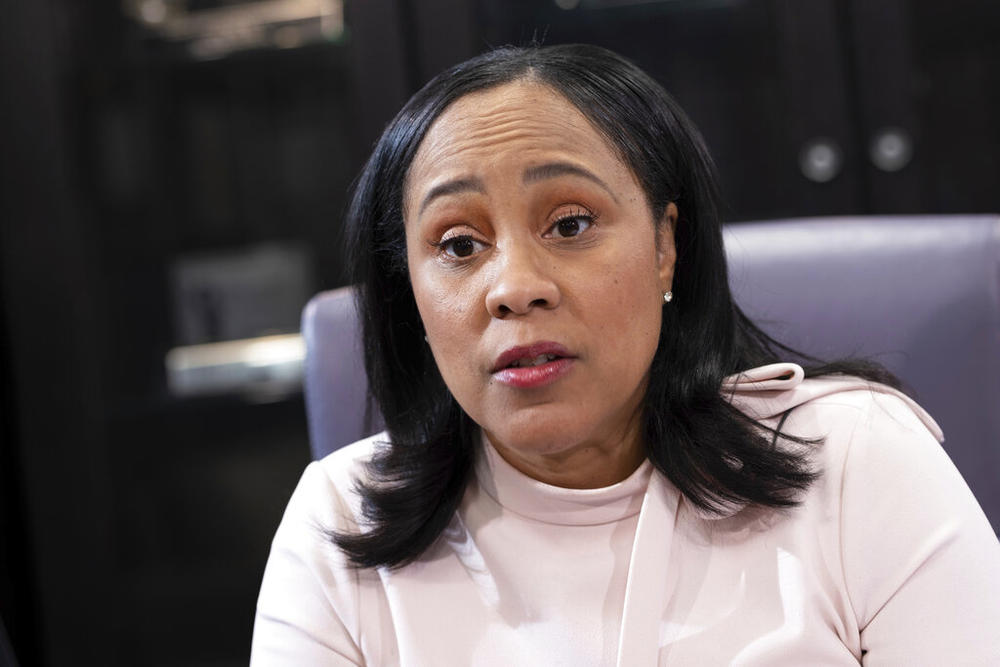
Caption
Fulton County Georgia District Attorney Fani Willis photographed in her office on Jan. 4, 2022. A request by the Georgia prosecutor who’s investigating whether Donald Trump and others broke the law by trying to pressure Georgia officials to throw out Joe Biden’s presidential election victory has been approved. Willis last week sent a letter to county superior court Chief Judge Christopher Brasher asking him to impanel a special grand jury. Brasher issued an order Monday, Jan. 24, 2022 saying the request was considered and approved by a majority of the superior court judges.
Credit: AP Photo/Ben Gray

